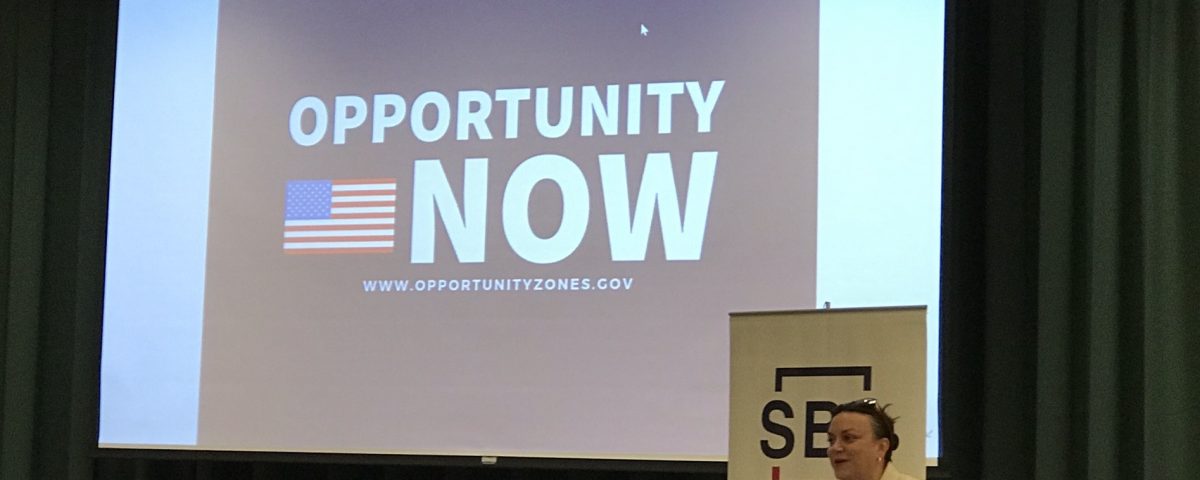
How the SBA Can Help Start-up Companies Compete for Funding – The Business Plan
December 13, 2019
Jeffrey Camp To Judge 2020 Miami Herald Startup Pitch Competition
March 2, 2020On December 7, 2019, the White House hosted its Opportunity Now Summit, and JC Venture Capital was invited to participate on its Access to Capital panel. The event is part of the White House’s ongoing effort to educate investors and business owners on the ways in which they can use Opportunity Zones in their funding and growth strategies. This effort has seen multiple Federal agencies, led by the Department of the Treasury, take proactive steps to provide guidance on regulations and give investors and entrepreneurs confidence that Opportunity Zones will be vibrant places for investment and growth with tax incentives that generate outsized after-tax returns to those who engage in them. As President Trump said at the first meeting of the White House Opportunity and Revitalization Council meeting in April 2019, “We’re providing massive tax incentives for private investment in [Opportunity Zones] to create jobs and opportunities where they are needed most”
The summit was well attended, and participants included representatives from private financers and business executives interested, or currently active, in opportunity zones. The Access to Capital panel provided a good platform to highlight JC Venture Capital’s role in providing early-stage equity capital to Opportunity Zone businesses, an area that we feel is underserved in the market. JC Venture Capital was the only participant on the panel that makes equity investments; the other participants represented debt financers, public and private. This presented a good opportunity to discuss the pluses and minuses of equity vs. debt financing for opportunity zone business.
The first thing to note is that the tax incentives for investing in opportunity zone businesses or property do not appertain to debt. The incentives apply only to equity investments. For this reason, we will not address the debt vs. equity decision from the investors point of view, since it is not applicable. From the entrepreneur’s perspective, however, there are some interesting matters to consider when deciding debt or equity is more appropriate means of financing.
The differences that exist between debt and equity outside of opportunity zones also exist within them. The most notable for this discussion is that while an investment of equity is permanent, debt is not. Debt is expected to be repaid over a period of time with a rate of interest commensurate with the risk of the loan. Equity capital is permanent, equity investors do not have a means to call back their investment once it is made. Rather, equity investors get their capital and returns only when the company, or their stake in it, is sold. Also, debt gets paid back before equity in the event of a sale or liquidation. For these reasons, among others, equity investors require a higher return on their investment than debt investors do. From an entrepreneur’s perspective this means that equity capital, while more stable and more aligned with the entrepreneur’s interests, is more expensive than debt. The higher the return demanded by the equity investor on their investment, the more expensive that capital is from the entrepreneur’s point of view. This is where Opportunity Zones come in.
The primary tax incentive for o-zone investors is the complete elimination of capital gains on investments in opportunity zones that are held for ten years of more. But an often-overlooked benefit is the ability to defer capital gain taxes on gains that are reinvested into opportunity zones. We estimate these two benefits, combined with a reduction in tax on the deferred gains, result in a 40% increase in after-tax returns compared to the same investment outside of an opportunity zone. (for more on this, click here to see our slides). This is a significant increase in returns, and for the purposes of our discussion of debt vs. equity, means that for entrepreneurs operating in an opportunity zone the cost of equity financing falls, making it a more attractive financing alternative. Consider an equity investor who requires a 20% after-tax annual rate of return in order to make an investment. Since the opportunity zone tax incentives result in a 40% increase in after-tax returns compared to the same investment outside of a zone, this means that an investor can afford to provide equity capital at a much lower pre-tax rate and make the same return. The entrepreneur should be sure to point this out when negotiating their deal terms, and the result will be a stronger balance sheet and more growth capital for o-zone business.


